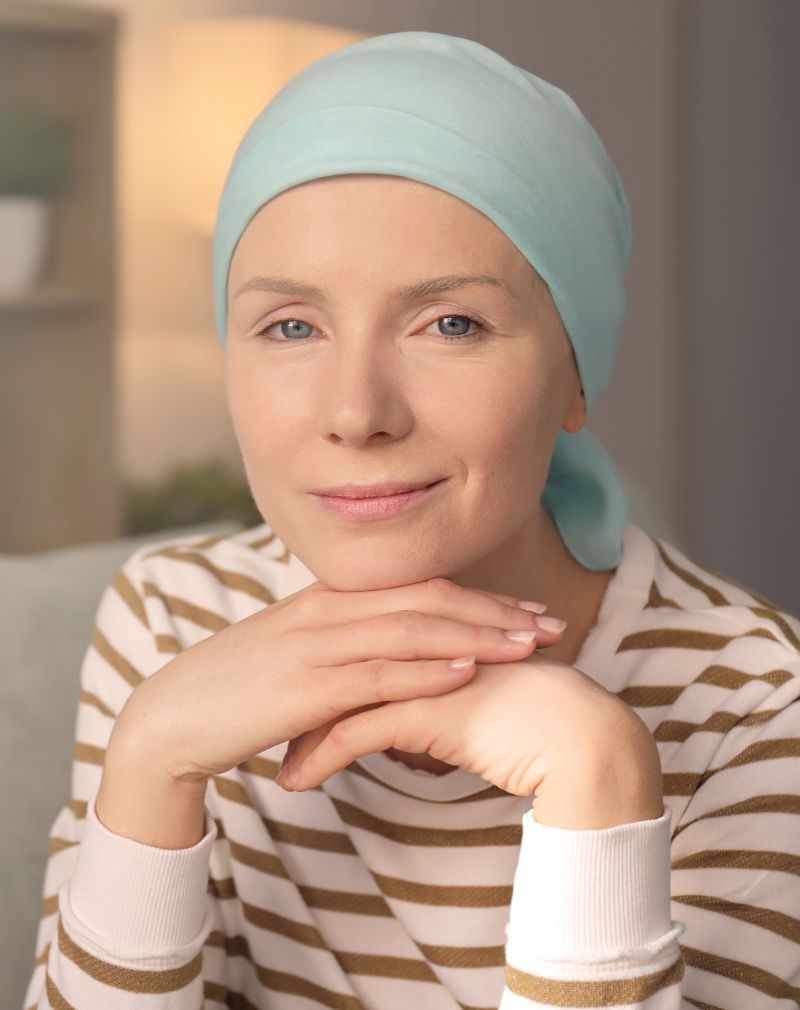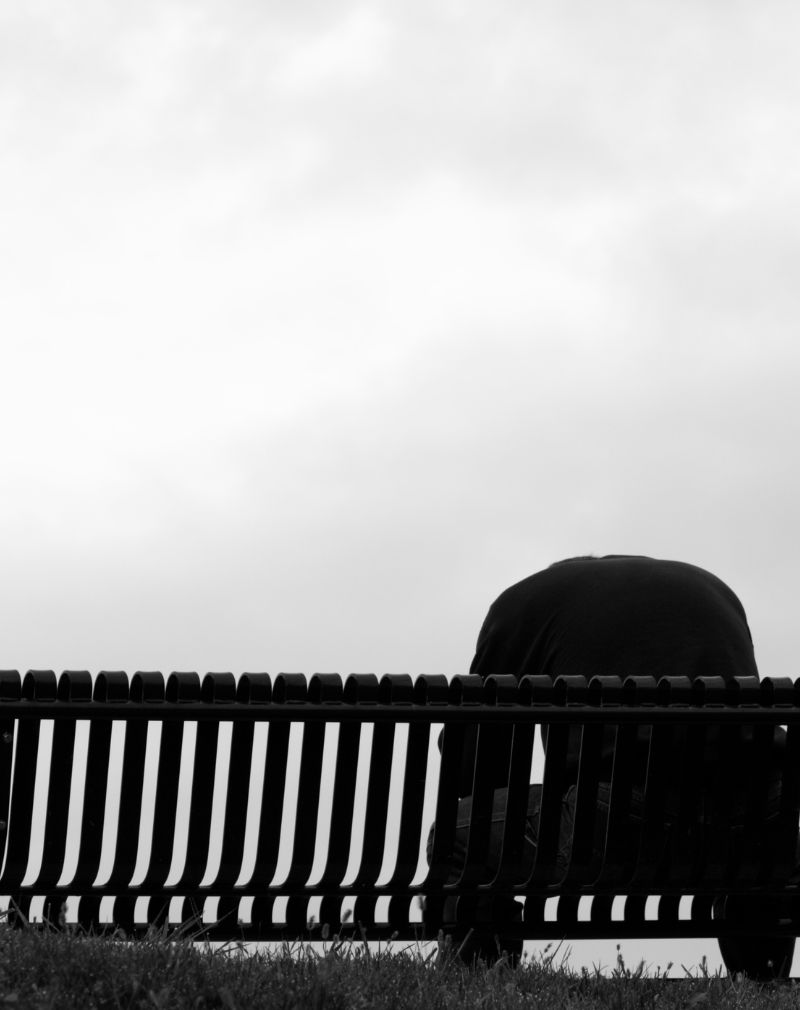Nearly one in three people receiving cancer treatment develop depression or anxiety. Not because they lack strength, but because living with fear every day changes how the mind works.
We often focus on scans, blood tests, and survival rates. But the real battle doesn’t always happen in a hospital room. It happens in the quiet moments, when sleep won’t come and hope feels thin.
Cancer doesn’t only live in the body. It seeps into identity, relationships, and self-worth. It can make the strongest person question who they are and whether life will ever feel normal again.
This month, as the world turns its attention to cancer awareness, it’s time to face an uncomfortable truth: treating the disease is not the same as healing the person.
At The American Wellness Center in Dubai Healthcare City, our Psychology Department helps patients find balance again. We work alongside medical teams to care for what medicine can’t touch; the fear, the sadness, and the quiet exhaustion that come with the fight.
The Emotional Cost of Cancer
Cancer doesn’t just test the body. It tests everything that holds you together.
The fear of death sits quietly in the background, even on good days. Guilt creeps in when you see your family worry. You lose control over things that once felt simple; your schedule, your energy, your reflection in the mirror.
Nearly half of all patients live with ongoing anxiety or depression during treatment. It’s not a character flaw. It’s a natural reaction to having your entire life rewritten overnight.
And the truth is, emotional pain can slow down physical recovery. When the mind is in survival mode, the body follows. Appetite fades. Sleep breaks. The immune system weakens. Even following treatment plans becomes harder.
Why Therapy Belongs in Every Cancer Treatment Plan
Therapy isn’t luxury care. It’s medicine for the mind.
Every cancer plan should include it, the same way it includes chemotherapy or pain management. Because emotional stability isn’t a side effect—it’s a foundation.
Psychotherapy at The American Wellness Center in Dubai Healthcare City gives patients the space to breathe, think, and cope. It helps them find meaning in the middle of chaos, not after it’s over.
Here’s how different approaches help:
- Cognitive Behavioral Therapy (CBT) teaches people to question the dark thoughts that appear at 3 a.m. – the ones that whisper “what if it comes back.”
- Acceptance and Commitment Therapy (ACT) helps patients live with uncertainty without letting it rule them. It focuses on what still matters: relationships, small joys, purpose.
- Meaning-Centered Therapy rebuilds identity. It asks the question no scan can answer— “Who am I now that cancer has changed me?”
Patients who receive therapy during treatment report less fatigue, better sleep, and stronger commitment to their care. They show up. They eat better. They recover faster. That’s not coincidence; that’s evidence.
Common Emotional Challenges During Cancer Care
Most patients don’t just face one kind of pain. They face three.
- Depression and Anxiety. Fear of recurrence can become a daily companion. The loss of normal life; work, routines, privacy can leave even the most resilient person feeling hollow.
- Trauma Responses. Hospitals, smells, or sounds can trigger flashbacks long after treatment ends. Some people avoid medical visits altogether because their bodies remember before their minds do.
- Relationship Strain. Cancer affects families, not just patients. Caregivers burn out. Children act strong but silently worry. Partners carry the weight of both fear and responsibility.
That’s why modern oncology care includes mental health as part of the team. Psycho-oncology treats the entire circle; the patient, the partner, the family. Because no one heals in isolation.
How Therapy Helps the Body Heal
The body doesn’t heal well in fear. When stress stays high, the hormone cortisol floods the system. Over time, it slows down the immune response and makes recovery harder.
That’s why emotional care isn’t optional; it’s biological. The mind and body speak the same language, and when one is tense, the other listens.
Cancer patients who stay in therapy often show lower inflammation levels and steadier sleep cycles. Their energy lasts longer. Their pain feels more manageable. Even their medication routines become easier to follow, because their minds aren’t constantly battling panic or exhaustion.
- A calm mind tells the body it’s safe to recover.
- Rest isn’t laziness; it’s chemistry in your favor.
- Fear tightens the body; therapy teaches it to let go.
At The American Wellness Center in Dubai Healthcare City, our psychologists use guided relaxation and mindfulness-based stress programs to help patients handle chemotherapy and radiation side effects.
We’ve watched anxiety drop, nausea ease, and breathing settle; proof that healing starts long before the lab results catch up.
Empowering Patients to Regain Control
Cancer can make people feel like life is happening to them instead of with them. Therapy helps change that.
It’s the space where “Why me?” slowly turns into “What now?”; a small shift that makes recovery feel possible again.
Through counseling, patients begin to rebuild the internal muscles that treatment can’t see:
- Emotional regulation: learning how to ride waves of fear without drowning in them.
- Hope and meaning reconstruction: rediscovering purpose, even in uncertainty.
- Communication confidence: finding the words to talk openly with doctors and loved ones.
These aren’t abstract goals. They’re survival tools. When patients feel emotionally steady, they make clearer decisions, follow through on care plans, and reconnect with the parts of life that still matter.
The Role of AWC’s Psychology Department
At The American Wellness Center in Dubai Healthcare City, we don’t treat emotional health as an afterthought. It’s built into the care plan from the start.
Our psychologists work alongside oncologists, physiotherapists, and nutritionists to create a full-circle model of care. Each part supports the other, the medical, the physical, and the emotional all move in sync.
Here’s what that looks like in real life:
- Emotional stabilization: steadying the mind during diagnosis and treatment so patients don’t feel swept away.
- Family and caregiver support: helping loved ones manage their own stress and stay strong for the patient.
- Resilience training: preparing patients for life after treatment—the checkups, the waiting, the rebuilding.
Our therapy rooms are quiet, private, and grounded in compassion. They’re not places for clinical lectures. They’re places where patients can breathe again, talk honestly, and start trusting their strength.
Where Healing Finally Meets the Heart
There’s a kind of pain medicine can’t find. It hides behind brave smiles and quiet nights. It looks fine on a scan but feels unbearable inside.
Too many people wait until that pain becomes unbearable before they reach out. They think time will soften it. It rarely does.
Therapy isn’t indulgence. It’s care that goes where medicine cannot. It steadies the mind so the body can finally rest. It gives shape to emotions that have been carrying too much for too long.
At The American Wellness Center in Dubai Healthcare City, our psychologists walk beside you through this part of the fight. We listen when the world has grown quiet. We help you rebuild strength that doesn’t just survive, but lives again.
If you’ve read this far, you already know it’s time. Let us take the next step with you because real recovery means healing the body and the heart that holds it.



